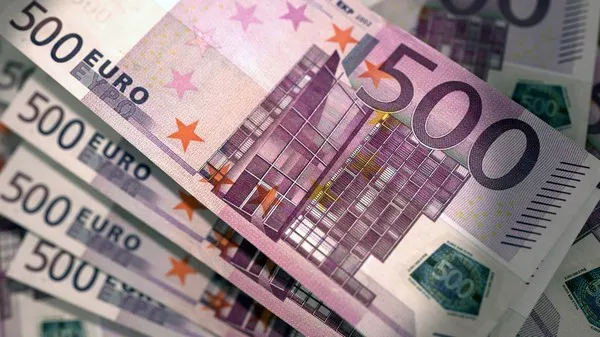The Gross Domestic Product (GDP) is a crucial economic indicator that measures the total value of goods and services produced within a specific region over a given period. In the context of the Eurozone, a monetary union comprising 19 European Union member states that have adopted the euro as their official currency, the GDP serves as a key metric for assessing the overall economic health and performance of the region. In this article, we delve into the intricacies of the Eurozone’s GDP, exploring its significance, factors influencing it, and its impact on the global economy.
Defining the Eurozone GDP
The Eurozone GDP represents the collective economic output of the member countries, measured in euros. This comprehensive measure encompasses various sectors, including agriculture, manufacturing, services, and construction. The Eurostat, the statistical office of the European Union, is responsible for compiling and publishing GDP data for the Eurozone.
Significance of GDP in the Eurozone
Economic Health: The GDP serves as a barometer of the economic health of the Eurozone. A rising GDP generally indicates economic growth, increased production, and higher employment levels. Conversely, a declining GDP may signal economic contraction, potentially leading to recessionary pressures.
Policy Formulation: Policymakers, including central banks and governments, rely heavily on GDP data to formulate and adjust economic policies. By understanding the current economic conditions, authorities can implement measures to stimulate growth, control inflation, and address unemployment.
Comparative Analysis: GDP allows for the comparison of economic performance among Eurozone member states. Disparities in GDP growth rates can highlight areas of concern, prompting policymakers to address imbalances and foster more equitable economic development.
Factors Influencing the Eurozone GDP
Trade Dynamics: As a region heavily engaged in international trade, the Eurozone’s GDP is significantly influenced by global economic conditions. Changes in demand for Eurozone exports, fluctuations in exchange rates, and geopolitical events can impact trade dynamics and, consequently, the overall GDP.
Monetary Policy: The European Central Bank (ECB) plays a pivotal role in shaping the economic landscape of the Eurozone. Decisions regarding interest rates, monetary stimulus, and other policy tools directly influence borrowing costs, investment, and consumer spending, all of which contribute to GDP growth.
Fiscal Policy: Government spending and taxation policies also play a crucial role in shaping the Eurozone’s GDP. Fiscal stimulus measures, such as infrastructure investments and tax cuts, can boost economic activity, while austerity measures may have the opposite effect.
Consumer and Business Confidence: The confidence levels of consumers and businesses are integral to economic activity. High confidence levels often translate into increased spending and investment, driving economic growth. On the other hand, low confidence can lead to reduced consumption and investment, hindering GDP growth.
Impact of the Eurozone GDP on the Global Economy
The Eurozone is a major player in the global economy, and fluctuations in its GDP can have far-reaching consequences. Several key aspects highlight the impact of the Eurozone’s economic performance on the global stage:
Trade Partners: The Eurozone is a significant trading partner for countries around the world. Changes in the Eurozone’s GDP can influence global demand for goods and services, affecting export-oriented economies.
Financial Markets: The Eurozone’s economic indicators, including GDP, influence financial markets globally. Investors closely monitor these indicators to assess the economic health of the region, making investment decisions based on their expectations of future economic conditions.
Euro as a Reserve Currency: The euro is one of the world’s major reserve currencies, and its stability is closely tied to the economic performance of the Eurozone. A robust GDP contributes to the euro’s strength and attractiveness as a reserve currency.
Challenges and Opportunities
While the Eurozone’s GDP is a vital indicator, the region faces both challenges and opportunities that can shape its economic trajectory:
Structural Reforms: Some Eurozone member states grapple with structural issues, such as high unemployment, rigid labor markets, and slow productivity growth. Implementing structural reforms is crucial to addressing these challenges and fostering sustained economic growth.
Integration Challenges: The Eurozone’s economic integration has faced hurdles, with disparities in fiscal policies, banking systems, and labor markets among member states. Addressing these disparities and strengthening economic integration can contribute to a more stable and resilient Eurozone.
Technological Innovation: Embracing technological advancements and fostering innovation can position the Eurozone for future economic growth. Investments in research and development, digital infrastructure, and education can enhance the region’s competitiveness on the global stage.
Conclusion
The GDP of the Eurozone is a multifaceted indicator that reflects the economic health and performance of the region. As a collective measure encompassing diverse member states, the Eurozone’s GDP is influenced by various factors, including trade dynamics, monetary and fiscal policies, and consumer and business confidence. Its impact extends beyond the region, affecting global trade, financial markets, and the status of the euro as a reserve currency.
While challenges persist, including structural issues and integration hurdles, the Eurozone also possesses opportunities for growth through technological innovation and policy reforms. As the region navigates the complexities of the global economic landscape, understanding and analyzing the GDP remains crucial for policymakers, investors, and observers alike.


